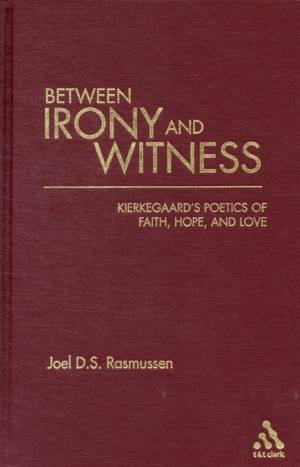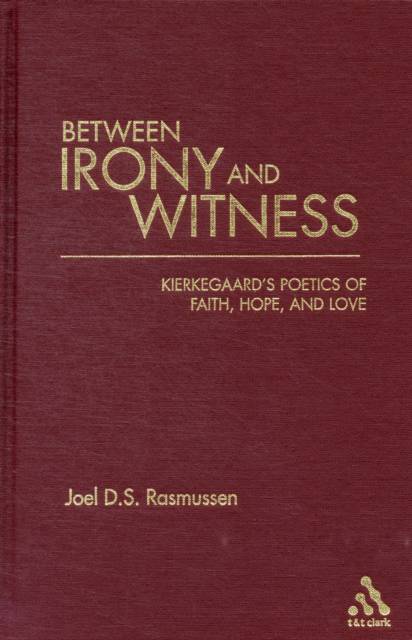
- Retrait gratuit dans votre magasin Club
- 7.000.000 titres dans notre catalogue
- Payer en toute sécurité
- Toujours un magasin près de chez vous
- Retrait gratuit dans votre magasin Club
- 7.000.0000 titres dans notre catalogue
- Payer en toute sécurité
- Toujours un magasin près de chez vous
Between Irony and Witness
Kierkegaard's Poetics of Faith, Hope, and Love
Joel D S RasmussenDescription
This book offers a novel interpretation of the relationship between religious concern and artistic creativity in the works of the self-styled "Christian poet and thinker" Søren Kierkegaard (1813-1855). Although Kierkegaard articulated neither a "Christology" in the sense that the term has for systematic theology, nor a generic "theory of poetry" in the sense that phrase has for literary criticism, this study makes the case that Kierkegaard's writings nevertheless do advance a "Christomorphic poetics," a tertium quid that resists conventional distinctions between theology and literature. Arguing that Kierkegaard's poetics takes shape in conversation with many of the major themes of early German Romanticism (irony, imaginative creativity, paradox, the relativization of imitation [mimesis], and erotic love), this book offers a fresh appreciation of the depth of Kierkegaard's engagement with Romanticism, and of the contours of his alternative to that literary movement.
Spécifications
Parties prenantes
- Auteur(s) :
- Editeur:
Contenu
- Nombre de pages :
- 208
- Langue:
- Anglais
Caractéristiques
- EAN:
- 9780567028419
- Date de parution :
- 16-09-05
- Format:
- Livre relié
- Format numérique:
- Genaaid
- Dimensions :
- 217 mm x 195 mm
- Poids :
- 453 g

Les avis
Nous publions uniquement les avis qui respectent les conditions requises. Consultez nos conditions pour les avis.






